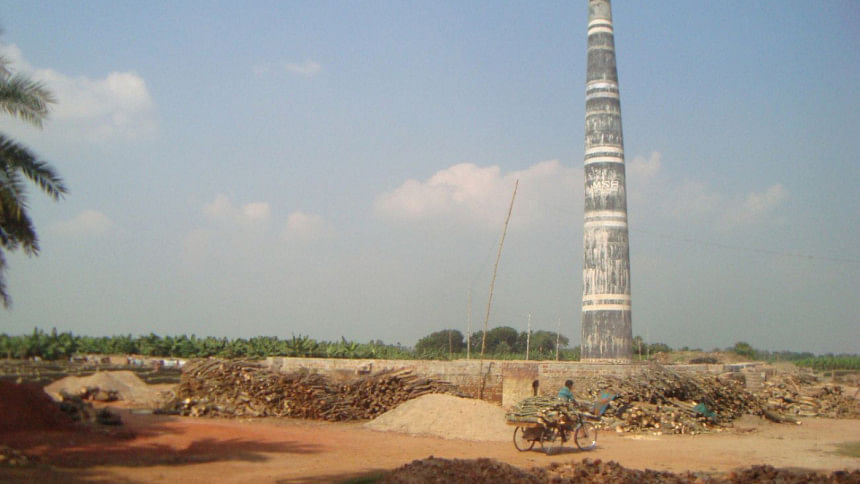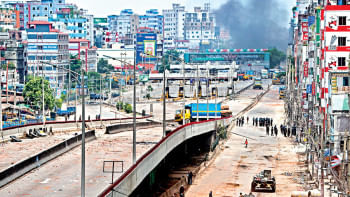Brick kilns on farmlands

Cultivable land is decreasing on a large scale due to rise in the number of brick kilns in the district and neighbouring ones.
Besides, the environment is getting badly polluted as most of the kilns are runing with chimneys that have much less than the stipulated height.
Zahid Hassan of the Nezarat Department at the Deputy Commissioner's (DC) office said licenses of eleven brick kilns have been renewed while five kilns were registered and papers for three others are being processed this year.
The DC's office issues license to the brick kilns.
Farmers are unhappy due to setting up of brick kilns in farmlands as the mud and the heat from the kilns harm the fertility of the land, said Toaj Ali of Raghunathpur village in Kaliganj upazila.
If a kiln is set up in farmland they will incur a huge loss, he said, adding that the owner of a kiln is trying to persuade him to sell his land to him (kiln owner).
Shahjahan Ali of the village said most kiln owners do not care about the the plight of the farmers. Kiln workers often let excess water drain into their crop land, he added.
Abdur Rahman of Khamarmundia village, Montu Mia of Dulalmundia village and Atiar Rahman of Paikpara village echoed the same.
Environmentalist Masud Ahmed Sanju of Jhenidah said brick kiln harms the quality of soil. No brick kiln should be run without having chimneys with required height as the rhizobium in the soil dies due to the heat of the brick kilns, he added.
The authorities concerned should ensure that the brick kilns are set up on barren land and open fields where pollution does not affect people, Masud said.
Satata Brick Kiln owner Delwar Hossain Jhantu said he is running his brick kiln without registration, paying money to the DC's office.
Akota Brick Kiln owner Alam Hossain said he runs his brick kiln with coal on four acres of land with registration. He, however, claimed that he has to give bribe to the journalists and the DC's office.
There were 90 kilns in six upazilas of the district in 2011 while there are 131 this year, said Shah Akramul Huq, deputy director of the Department of Agriculture Extension in the district.
There were 1,96,167 hectares of cultivable land in Jhenidah in 2007 while there are 1,50,769 hectares in 2017, a decrease of 45,398 hectares, due to setting up of brick kilns at random, Akramul said, adding that if this continues there will be no cultivable land in future.

 For all latest news, follow The Daily Star's Google News channel.
For all latest news, follow The Daily Star's Google News channel. 



Comments